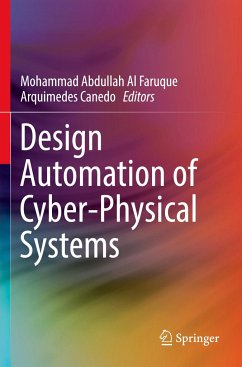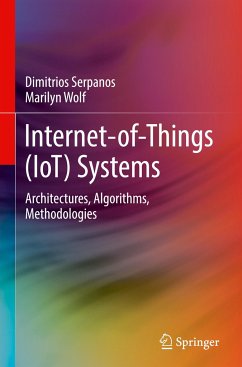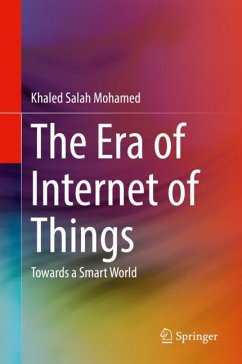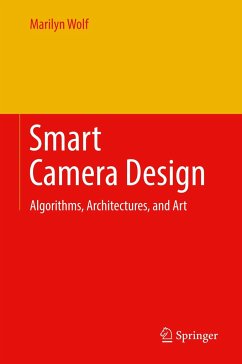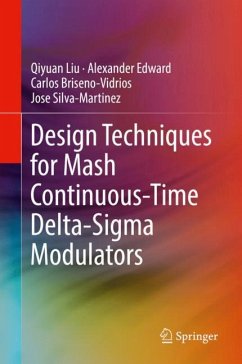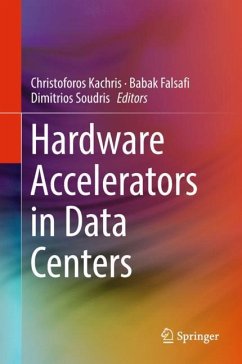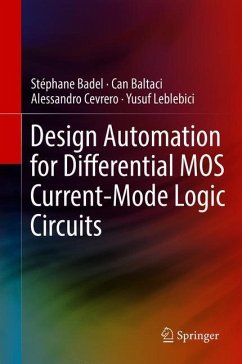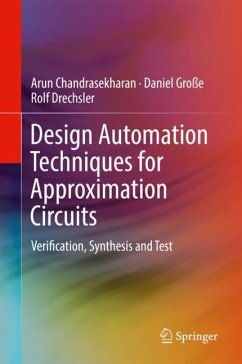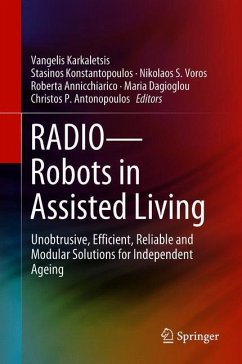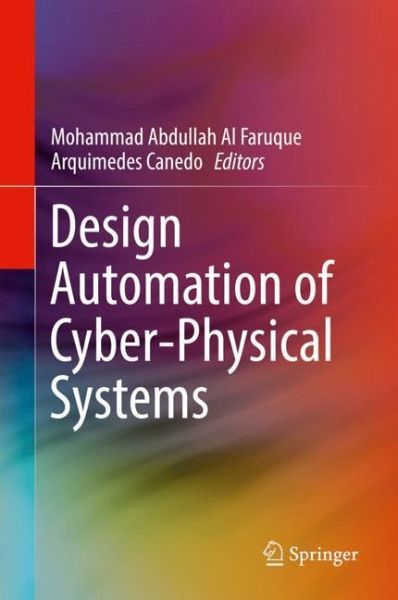
Gebundenes Buch
Design Automation of Cyber-Physical Systems
Versandkostenfrei!
Versandfertig in 6-10 Tagen
Weitere Ausgaben:

PAYBACK Punkte
38 °P sammeln!





This book presents the state-of-the-art and breakthrough innovations in design automation for cyber-physical systems.The authors discuss various aspects of cyber-physical systems design, including modeling, co-design, optimization, tools, formal methods, validation, verification, and case studies. Coverage includes a survey of the various existing cyber-physical systems functional design methodologies and related tools will provide the reader unique insights into the conceptual design of cyber-physical systems.
Mohammad Al Faruque is currently with the University Of California Irvine (UCI), where he is an associate professor (with tenure) and directing the Cyber-Physical Systems Lab. Prof. Al Faruque is the recipient of the IEEE Technical Committee on Cyber-Physical Systems Early-Career Award 2018 and the IEEE CEDA Ernest S. Kuh Early Career Award 2016. He is also the recipient of the UCI Academic Senate Distinguished Early-Career Faculty Award for Research 2017 and the School of Engineering Early-Career Faculty Award for Research 2017. He served as an Emulex Career Development Chair during October 2012 till July 2015. Before, he was with Siemens Corporate Research and Technology in Princeton, NJ. His current research is focused on system-level design of embedded systems and Cyber-Physical-Systems (CPS) with special interest on model-based design, multi-core systems, CPS security, etc. Prof. Al Faruque received his B.Sc. degreein Computer Science and Engineering (CSE) from Bangladesh University of Engineering and Technology (BUET) in 2002, and M.Sc. and Ph.D. degrees in Computer Science from Aachen Technical University and Karlsruhe Institute of Technology, Germany in 2004 and 2009, respectively. Prof. Al Faruque received the Thomas Alva Edison Patent Award 2016 from the Edison foundation, the 2016 DATE Best Paper Award, the 2015 DAC Best Paper Award, the 2009 IEEE/ACM William J. McCalla ICCAD Best Paper Award, the 2016 NDSS Distinguished Poster Award, the 2008 HiPEAC Paper Award, the 2015 Hellman Fellow Award, the 2015 Kane Kim Fellowship Award, the 2017 ICCAD Best Paper Award Nomination, the 2017 DAC Best Paper Award Nomination, the 2012 DATE Best IP Award Nomination, the 2005 DAC Best Paper Award Nomination, the EECS Professor of the year 2015-16 Award, and the 2015 UCI Chancellor's Award for Excellence in Fostering Undergraduate Research. Besides 80+ IEEE/ACM publications in the premier journals and conferences, Prof. Al Faruque holds 7 US patents. Prof. Al Faruque is currently serving as the associate editor of the ACM Transactions on Design Automation on Electronics and Systems and publication editor of the IEEE Design & Test. He is an IEEE senior member and an ACM senior member. Arquimedes Canedo is Principal Key Expert Scientist at Siemens Corporate Technology in Princeton, NJ.
Produktdetails
- Verlag: Springer / Springer International Publishing / Springer, Berlin
- Artikelnr. des Verlages: 978-3-030-13049-7
- 1st edition 2019
- Seitenzahl: 300
- Erscheinungstermin: 17. Mai 2019
- Englisch
- Abmessung: 241mm x 160mm x 22mm
- Gewicht: 602g
- ISBN-13: 9783030130497
- ISBN-10: 3030130495
- Artikelnr.: 54900330
Herstellerkennzeichnung
Springer-Verlag GmbH
Tiergartenstr. 17
69121 Heidelberg
ProductSafety@springernature.com
"The case studies, as well as the diagrams, graphs, and tables, are particularly useful for illustrating the numerical data resulting from the implementation of the presented algorithms and methods, and they help clarify the analyzed concepts. ... Design automation of cyber-physical systems is excellent for researchers, academics, and practitioners who want a deeper understanding of both basic and advanced topics ... . The wide range of interesting topics, combined with the depth of each chapter, makes it an essential book." (Eugen Petac, Computing Reviews, September 17, 2021)
Für dieses Produkt wurde noch keine Bewertung abgegeben. Wir würden uns sehr freuen, wenn du die erste Bewertung schreibst!
Eine Bewertung schreiben
Eine Bewertung schreiben
Andere Kunden interessierten sich für


